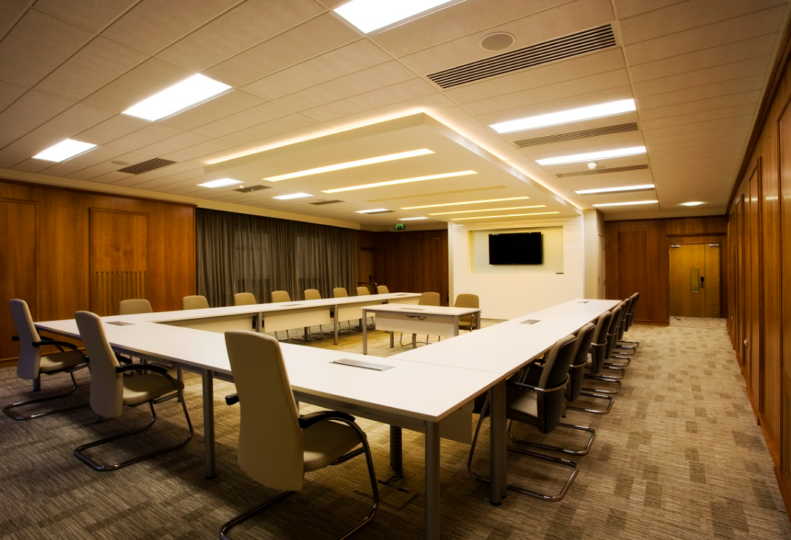
The growth of mediation in a wide range of settings continues apace. While its advantages are generally well advertised, insights into the mediation process works can serve as an important element in its promotion.
Mergi Hernandez examines the key stages.
The Pre-Mediation Phase
After the parties have agreed to undertake mediation, the process is very flexible and can differ in styles and approaches.
Generally, a number of connected phases and steps are followed and repeated in the pursuit of finding a mutually acceptable resolution. The success or failure of the process lends its self to the skill and expertise of the mediator, as much as the willingness of the parties to engage.
The preparation will focus on the relationship of the parties, the mediation process itself and the dispute itself. This phase is generally managed by a solicitor, however parties may directly engage a barristers or other professional without the necessity of a solicitor.
The parties willl need to gather adequate information[5] about the process to see if their dispute is suitable for meditation.[6] Participation is on a voluntary basis,[67 with their informed consent,[8] before the dispute can be referred to mediation. Most of the time this information is provided by the parties’ advisors, if any.
Selecting a Mediator
The parties may choose to select their own mediator directly from a given institution or seek referrals. The selection[9] of the mediator is crucial to a successful mediation, as the mediator may be requiring having somewhat a background knowledge or speciality to conduct the mediation put before him/her. They must be competent, capable of building a rapport, trust, and confidence with the parties and to assess the parties’ attitudes and behaviour,[10] to achieve a successful resolution to the dispute.
Where legal proceedings are in being or are being threatened, the parties may consider postponing or adjourning those proceedings[11], to see if an agreement can be reached between the parties.
Preparation for the Mediation
Once the parties have agreed to undertake mediation to resolve their dispute, and the mediator has been selected, the mediator may initiate contact either face to face, via Zoom, by phone or email, before the appointed day of the mediation.[12]
There is not an exact formula as to how the mediator should run the mediation[13] at this stage. This can include
- A short briefing about the process,
- Rules and how it would be conducted,[14]
- The mediator should also provide the parties with his or her qualification[15] and years of practice, membership of any professional bodies, code of conduct which the mediator is bound by[16],
- The relevant fees and cost for the mediation,
- The date, time and time in which the mediation will be conducted[17].
The physicial venue [if not online] is usually a neutral venue, where no party feels threatened; such as a lawyer’s office, dispute resolution centre, conference centres, hotel conference room or court premises.

The Bar of Ireland provides an Arbitration and Alternative Dispute Resolution Appointment Service for parties unable to decide on a mediator or arbitrator.
This scheme provides a fast and free service whereby the parties to a dispute can if they agree, ask the Chair of the Council of The Bar of Ireland to appoint a Barrister to act as Arbitrator or Mediator to the dispute.
Agreement to Mediate
The mediator should proceed and confirm the agreement to mediate with the parties, whereby they agreed to mediate the dispute and present to the parties a copy of an “agreement to mediate”[18]which contains all the above and a clause setting out how the parties could make a complaint if a party is not satisfied with the professional behaviour[19] of the mediator.
A clause setting out what data will be processed/stored and for what period, should be cited as well as information as to the confidentiality of the process.[20] The mediator must also inform the parties as to their right to seek legal advice,[21] the way the mediation can be terminated,[22] and such other terms as agreed by the parties.[23]
An important issue, during this stage, the mediator should enquire as to any potential conflict of interest that may impede him/her from acting as mediator.[24] Or any acquaintances associated with the parties to the mediation or their representatives to ascertain neutrality and impartiality in the process[25]. This stage of the process will assist the mediator in assessing the parties’ mood, behaviour and decide whether to have the parties in a joint discussion or private session (Caucus).[26]
The Mediation Process
In this phase, the mediator will usually meet each party individually, and deal with any queries or concerns they may have and prepare them for a joint meeting. At this stage the mediation agreement should have been signed. When the parties are brought together, the mediator will have his/her first opportunity to assess the dynamic between the parties.
Mediators generally follow a common plan[27] for their mediation session[28]. This can include:
- An opening statement by the mediator, identifying himself/herself to the parties, outlining his/her credentials,
- Setting out the ground rules for the mediation,
- reinforcing the mediation agreement, emphasising the voluntary nature of the process,
- review the confidentiality of the process to ensure the parties understand what can and cannot be held in confidence[29] and defining his/her role[30] as a facilitator[31] rather than a decision maker.[32]
- Finally the mediator should congratulate the parties for attempting to settle their dispute and assert confidence in the process they are about to undertake.[33]
After the mediator has made his or her opening statement, the parties will proceed to make their own opening statements uninterrupted.
Mediation Skills
A qualified mediator exercises the skills of active listening and carefully pays attention to the opening statement of the parties, so that he or she can gain an initial view of the real source of the problem. It will also assist the mediator in determining who may need an individual meeting, commonly referred to as caucuses.
The mediator uses excellent communication skill to enable him/her to summarise and reframe the problem of what the parties described in their opening statement, with the use of positive language, creating trust and making sure that she/he captures the parties’ views, needs and emotions.[34]
Information Gathering Stage
The mediation moves into an information gathering stage, where the mediator will ask the parties questions to identify problem areas and common issues and may allow them to discuss the issues with each other rather than the mediator.
This is an important opportunity will assist the parties to focus less on their position and more on their interest. The mediator must maintain a positive environment, defusing negative emotions and enforcing behavioural rules to tackle rudeness and or interruptions. This stage of the process can take on a joint session or private session (Caucus) between the mediator and one of the parties. Where sensitive issues are discussed, or when the parties need to cool off and refocus, caucus is the appropriate forum.
When the mediator holds caucuses with a party, he or she should explain the rules on confidentiality and the “without prejudice privilege”[35] before starting the session and at the end of the meeting. The mediator should verify what information the parties wish to keep confidential and what information can be disclosed.
Exploration Stage
The mediation will then move to an exploration phase, where the mediator will ask further questions of each of the parties to establish common ground by uncovering and clarifying the parties’ hidden interests if any,[36] and shape the agenda for the mediation, which may include joint and individual meetings (caucuses).
The mediator may encourage each party to acknowledge the other side’s interests even if they do not agree with them, to work on possible solutions. Generally, participants find a therapeutic value in being able to articulate their feelings in an atmosphere in which the other side is prepared to acknowledge such concerns and, even they do not accept them in full, at least recognise that they are of importance to the other.
During the information gathering and the exploration phase, instances may arise, where the parties become entrenched in their position, get annoyed, reach flashpoint in an ongoing state of tension, disagree about specific incidents and issues that have proved difficult to let go.
A skilled mediator shows empathy and sensitivity to allow such expressions, but not to compromise the goal and progress achieved. At the end of this session, the mediator should have clarity on the parties’ issues, needs and interest to prepare the ground for settlement agreement.
Breaking a Deadlock: Bargaining & Settlement
After the exploratory phase, the mediation moves into the bargaining phase where the mediator brings the parties to the Zone Of Potential Agreement (ZOPA).
At the bargaining stage, the mediator’s task is to make the parties comfortable with making concessions, until they reach a mutually acceptable compromise. This can shift the parties from viewing the problem in Zero Sum terms towards that of mutual benefits and shared gains.[37] This method assists in preventing negotiation deadlocks.[38]
Where the parties cannot reach a substantive agreement, or are deadlocked, the mediator will guide the parties by using a number of techniques of direct and indirect negotiation skills, preparing the parties for reality testing and risk assessment such as Best Alternative To a Negotiation Agreement (BATNA) and Worst Alternative To a Negotiation Agreement (WATNA).
The mediator must have persuasion skills for use in the process of negotiation, to identify the constraints (legal, financial, and practical) which will hamper finding a solution[39] and convey impressions or ideas that alter the other’s perception of a situation or proposal by putting forward a realistic alternative.
A mediator skilled in managing people’s expectations, will exercise some level of pressure on the parties during the negotiation process. It will also give the parties enough freedom to articulate on their views to achieve a good outcome.
Towards a Settlement Agreement

At the conclusion stage[40], the parties may consider proceeding by drafting the settlement proposal, if any was agreed, In the settlement proposal, the parties would have outlined new terms of the contract if any, performance of same and the deadline within which the performance will be carried out.
The time set will need to be a realistic time. The parties may also decide whether the said settlement agreement will be binding on the other.[41] The parties may also consider whether they wish to avail of the mediation again if future grievances arise.
Developments in Policy
The use of mediation in Ireland continues to be promoted by both industry and legal professionals, due to the possibility for resolution. However, neither is it a panacea and in some circumstances, the courts are the most appropriate forum.
The Mediation Act 2017, changes to the Civil Liability & Courts Act 2004, as well is its promotion in a wide number of strategy proposals, all point to expanding use in a wide range of contracts and contexts. Indeed, the Report of the Judicial Planning Working Group provides an explicit recommendation:
Recognising the right of persons to have recourse to the Courts, it is recommended that every opportunity be taken to utilise ADR mechanisms such as mediation, arbitration and conciliation in appropriate circumstances and on a voluntary basis, to resolve disputes in areas in which they are under-utilised which should alleviate the burden on judicial time.
Conclusion
We think of mediation as a process rather than a dry formula because the parties are human and their motivations, and perceived interests, are rarely simple or straightforward. Furthermore, the mediator is a facilitator and is not there to adjudicate or impose solutions.
Those who have a positive experience of the mediation process view it as progressive, in that it allows space and flexibility to deal with sometimes complex, intertwined and personal positions, that the court setting may not be suitable.
Similarly, an experience legal advisor and mediator will be to identify the conditions where mediation is not a viable option, and that the court litigation process may the best in terms of advancing matters. Regardless, the qualities, experience and nuance of a mediator can be determinative of whether a matter at mediation falls or stands, and whether the parties sustainably proceed beyond the current dispute.
The views expressed above are the author’s own and do not reflect the views of The Bar of Ireland.

Alternative Dispute Resolution Services at The Bar of Ireland
A significant number of members of The Bar of Ireland are accredited mediators, and all barristers can act as arbitrators. They offer a wide range of experience in many areas of law.
Footnotes
[1] Penelope McRedmond, Mediation Law (Reprinted 2019, Bloomsbury Professional Ltd 2018) para [1.28] at p15.
[2] Law Reform Commission, Report on Alternative Dispute Resolution: Mediation and Conciliation (LRC 98-2010) (Dublin, November 2010), CHAPTER 2 ADR: TERMINOLOGY & SCOPE, Parra [2.25] p19 at https://www.lawreform.ie/_fileupload/reports/r98adr.pdf
[3] Christopher Moore, Summary of “The Mediation Process: Practical strategies for Resolving Conflict” available at https://www.beyondintractability.org/bksum/moore-mediation
[4] The Mediator’s Institute of Ireland, Before Mediation, at https://www.themii.ie/about-mediation/mediation-process/before-mediation [accessed 09 March 2022]
[5] s23 (1), Mediation Act 2017 Applicable to mediation sessions in family law and succession proceedings
[6] Penelope McRedmond, Mediation Law (Reprinted 2019, Bloomsbury Professional Ltd 2018) para [3.150] at p123 And Atlantic Shellfish v Cork County Council et al [2015] IEHC 570.
[7] Penelope McRedmond, Mediation Law, Chapter 4, Voluntariness (Reprinted 2019, Bloomsbury Professional Ltd 2018) para [4.04] at p134.
[8] Penelope McRedmond, Mediation Law, Chapter 6 (Reprinted 2019, Bloomsbury Professional Ltd 2018) para [6.23] at p178.
[9] Penelope McRedmond, Mediation Law (Reprinted 2019, Bloomsbury Professional Ltd 2018) para [6.27] at p180.
[10] Penelope McRedmond, Mediation Law (Reprinted 2019, Bloomsbury Professional Ltd 2018) para [1.32] [1.33] at p17-18.
[11] s19(1)(2)(3). Mediation Act 2017.
[12] The Mediator’s Institute of Ireland, Preparation for the mediation, para 3, accessed at https://www.themii.ie/about-mediation/mediation-process/before-mediation
[13] Honorable Society of King’s Inns, Alternative Dispute Resolution Course Manual p.57
[14] Penelope McRedmond, Mediation Law (Reprinted 2019, Bloomsbury Professional Ltd 2018) para [3.150] at p123.
[15] S8(1)(b)(i)(ii)(iii) Mediation Act 2017.
[16] S8 (1)(c) Mediation Act 2017.
[17] s7(a)(b)(c). Mediation Act 2017.
[18] s7. Mediation Act 2017
[19] Penelope McRedmond, Mediation Law (Reprinted 2019, Bloomsbury Professional Ltd 2018) para [3.62] at p65. See s50 of the Mediators Institute of Ireland’s Code of Ethics and Practice and s10 (1) (e) Mediation Act 2017, states that disclosure of confidential information may be disclose by the mediator in order to defend him/herself against such proceedings.
[20] Farm Assis Ltd v The Secretary of State for the Environment Food and Rural Affairs (No. 2) [2009] EWHC 11O2 (TCC); [2009] B.R.L 399 (TCC)
[21], s7(d)(e), s10(2), Mediation Act 2017.
[22]s7(f). Mediation Act 2017.
[23] Penelope McRedmond, Mediation Law (Reprinted 2019, Bloomsbury Professional Ltd 2018) para [3.62] at p65.
[24] s8 (2)(a). Mediation Act 2017.
[25] S8(2)(b) Mediation Act 2017.
[26] The mediator’s Institute of Ireland, Preparation for the mediation, para 3, accessed at https://www.themii.ie/about-mediation/mediation-process/before-mediation
[27] Law Reform Commission, Report on Alternative Dispute Resolution: Mediation and Conciliation (LRC 98-2010) (Dublin, November 2010), CHAPTER 2 ADR: TERMINOLOGY & SCOPE, Parra [2.31] p20 at https://www.lawreform.ie/_fileupload/reports/r98adr.pdf
[28] The mediator’s Institute of Ireland, The Mediation, accessed at https://www.themii.ie/about-mediation/mediation-process/before-mediation
[29] s10(2) (a)(b)(c)(d)(e). Mediation Act 2017.
[30] s7. Mediation Act 2017.
[31] Law Reform Commission, Report on Alternative Dispute Resolution: Mediation and Conciliation (LRC 98-2010) (Dublin, November 2010), CHAPTER 2 ADR: TERMINOLOGY & SCOPE, Parra [2.32] p21 at https://www.lawreform.ie/_fileupload/reports/r98adr.pdf
[32] Penelope McRedmond, Mediation Law (Reprinted 2019, Bloomsbury Professional Ltd 2018) para [2.02] [2.03] at p21-22.
[33] The mediator’s Institute of Ireland, The Mediation, accessed at https://www.themii.ie/about-mediation/mediation-process/before-mediation
[34] Jennifer E. Beer & Caroline C. Packard with Eileen Stief, The Mediator’s Handbook, (4th, Edn, new society Publishers) at p95
[35] Mediation Act 2017 s10(3) Evidence introduced into or used in mediation that is otherwise admissible or subject to discovery in proceedings shall not be or become inadmissible or protected by privilege in such proceedings solely because it was introduced into or used in mediation.
[36] Law Reform Commission, Report on Alternative Dispute Resolution: Mediation and Conciliation (LRC 98-2010) (Dublin, November 2010), CHAPTER 2 ADR: TERMINOLOGY & SCOPE, Parra [2.33] p21 at https://www.lawreform.ie/_fileupload/reports/r98adr.pdf
[37] Zero Sum negotiations result in an advantage for one side equating to an equivalent loss for the other. A non-zero-sum game is one where both parties can gain without the other losing. Oxford Dictionary for the Business World, OED, 1993. The theory originates in mathematics of Jon van Neuman and economics of Oskar Morganstern.
[38] Law Reform Commission, Report on Alternative Dispute Resolution: Mediation and Conciliation (LRC 98-2010) (Dublin, November 2010), CHAPTER 2 ADR: TERMINOLOGY & SCOPE, Parra [2.32] p21 at https://www.lawreform.ie/_fileupload/reports/r98adr.pdf
[39] The mediator’s Institute of Ireland, Preparation for the mediation, para 3, accessed at https://www.themii.ie/about-mediation/mediation-process/before-mediation.
[40] Penelope McRedmond, Mediation Law, Chapter 11, Mediation and the European Union (Reprinted 2019, Bloomsbury Professional Ltd 2018) para [11.16] at p321.
[41] See [11.18] p321.

